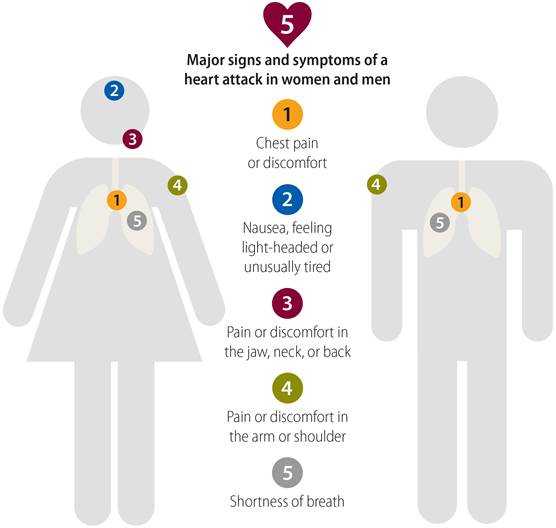Heart Attack Signs and Symptoms
The five major symptoms of a heart attack are
- Pain or discomfort in the jaw, neck, or back.
- Feeling weak, light-headed, or faint.
- Chest pain or discomfort.
- Pain or discomfort in arms or shoulder.
- Shortness of breath.
Other symptoms of a heart attack could include unusual or unexplained tiredness and nausea or vomiting. Women are more likely to have these other symptoms. Learn more about women and heart disease.
Call 9-1-1
If you notice the symptoms of a heart attack in yourself or someone else, call 9-1-1 immediately. The sooner you get to an emergency room, the sooner you can receive treatment to prevent total blockage and heart muscle damage or reduce the amount of damage. At the hospital, health care professionals can run tests to determine whether a heart attack is occurring and decide the best treatment.
In some cases, a heart attack requires cardiopulmonary resuscitation (CPR) or electrical shock (defibrillation). Bystanders trained to use CPR or a defibrillator may be able to help until emergency medical personnel arrive.
Remember, the chances of surviving a heart attack are greater the sooner emergency treatment begins.

- Page last reviewed: August 5, 2015
- Page last updated: August 5, 2015
- Content source:



 ShareCompartir
ShareCompartir
